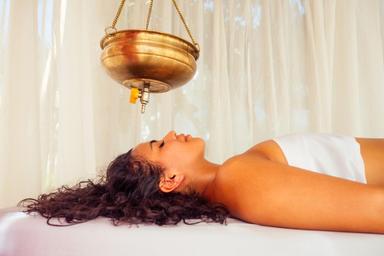
Boning Up on Bone Density: A Holistic Approach
11 Sep, 2023
 Healthtrip
HealthtripBones often don't get the credit they deserve. They're our silent, sturdy companions, providing structure, support, and the ability to move. However, like all good things, bone strength can diminish with time. Enter the bone density test, a superhero in the world of healthcare. In this blog, we're going to uncover the mysteries behind bone density tests, why they matter for your well-being, and what to expect when you're tested.
Why Your Bones Matter More Than You Think?
Before diving into the test, itself, let's appreciate the vital role bones play in our lives. Think of them as the unsung heroes that stand guard, protecting your vital organs and enabling your body to leap, run, and dance through life.
Most popular procedures in India
But as the years go by, this superhero support system can weaken. If your bones become less dense and more porous, you might be dealing with osteoporosis, a condition that makes fractures and breaks more likely. The tricky part? Osteoporosis often flies under the radar, without any symptoms until it's too late. So, what can you do? Get acquainted with the bone density test, your trusty sidekick in the fight against brittle bones.
Decoding the Bone Density Test
Alright, let's pull back the curtain and see what's happening behind the scenes during a bone density test. First things first, it's not as intimidating as it sounds. In fact, it's painless and non-invasive.
Wellness Treatments
Give yourself the time to relax
Lowest Prices Guaranteed!

Lowest Prices Guaranteed!
During the test, you'll lie down comfortably while a special X-ray machine does its thing. It sends out a tiny amount of radiation – don't worry, it's super minimal and safe for most folks. This machine scans your hip and spine bones, which are the VIPs when it comes to bone density.
The results come in the form of two scores: T-score and Z-score.
- T-Score: Imagine your bone density being compared to that of a healthy, spry young adult of your gender. If your T-score falls between -1 and -2.5, it's a hint that your bone density is lower than it should be (hello, osteopenia). If it's -2.5 or below, you're in osteoporosis territory.
- Z-Score: This one's like a bone-density age match-up. It compares your bone density to someone your age, your gender, and with a similar build. If your Z-score is way below average, it might signal other issues affecting your bones.
Who Should Consider a Bone Density Test?
Now, the million-dollar question: who needs this superhero assessment? Here's the scoop:
- Postmenopausal Women: Ladies, because of hormonal shifts, you're more susceptible to osteoporosis. So, it's a good idea to check your bone density.
- Gentlemen Over 50: Guys, you're not off the hook. Osteoporosis isn't just a ladies' affair, especially as you age.
- Risk Factors Galore: If you have a family tree dotted with osteoporosis, a history of bone fractures, or specific medical conditions (like rheumatoid arthritis or kidney issues), your doctor might recommend a bone density test earlier in life.
- Medication Marvels: Certain meds, such as corticosteroids and some anti-seizure drugs, can mess with your bone density. So, if you're a long-term user, it's worth checking in.

Making Sense of Your Bone Density Results
Getting the test is one thing, but understanding the results is where the real magic happens. Your healthcare pro will help you decipher your T-score and Z-score, factoring in your unique risk factors. If osteoporosis or osteopenia is in the picture, they'll work with you to create a customized plan of action.
Deciphering Your T-Score and Z-Score:
- T-Score: Your T-score is a critical factor in assessing your bone health. It compares your bone density to that of a healthy young adult of the same sex. Here's what the T-score indicates:
- Between -1 and -2.5: If your T-score falls within this range, it suggests that your bone density is lower than the peak bone mass typically seen in healthy young adults. This is often referred to as osteopenia, indicating reduced bone density but not yet at the level of osteoporosis.
- -2.5 or Lower: A T-score of -2.5 or below is a clear sign of osteoporosis. In this case, your bones have lost considerable density and become more vulnerable to fractures.
- Z-Score: Unlike the T-score, which compares your bone density to young adults, the Z-score compares it to people of your age, sex, and body size. A Z-score significantly below average might suggest other factors impacting your bone health beyond aging.
Implications of Your Scores:
- Normal Bone Density: If your T-score is above -1 and your Z-score is close to zero, it's good news. Your bone density is within a healthy range for your age and gender. Maintain a bone-friendly lifestyle to keep it that way.
- Osteopenia: A T-score between -1 and -2.5 indicates that your bone density is lower than ideal but not in the osteoporosis zone. This is a call to action. You can focus on lifestyle changes such as a balanced diet, regular exercise, and other preventive measures to enhance your bone density.
- Osteoporosis: A T-score of -2.5 or lower signals that your bones have become brittle and prone to fractures. But don't lose hope. Your healthcare provider will work with you to develop a personalized plan, which might include medications, dietary modifications, and exercises to fortify your bones.
Next Steps:
- Consult Your Healthcare Provider: Regardless of your results, consult with your healthcare provider to discuss the scores in the context of your overall health and history.
- Lifestyle Adjustments: If you have osteopenia or osteoporosis, your doctor may recommend dietary changes, an exercise regimen, and possibly supplements to strengthen your bones.
- Medication and Treatment: In cases of osteoporosis, your healthcare provider may prescribe medications designed to slow bone loss and lower the risk of fractures.
- Regular Follow-Ups: Bone density can change over time, so it's vital to schedule follow-up tests as advised by your doctor. This helps monitor your progress and assess the effectiveness of your bone-strengthening efforts.
Taking Charge of Your Bone Health
Now that you're well-versed in the world of bone density tests, let's explore some proactive steps you can take to boost and maintain your bone health:
1. Nourish Your Bones: A well-balanced diet rich in calcium and vitamin D is your bone's best friend. Dairy products, leafy greens, almonds, and fortified foods can help you get your daily dose of these essential nutrients.
2. Move It, Don't Lose It: Regular weight-bearing exercises, like walking, dancing, or weightlifting, can help strengthen your bones. Exercise not only builds bone density but also improves balance, reducing the risk of falls and fractures.
3. Kick Bad Habits: Smoking and excessive alcohol consumption can negatively impact your bone health. If you indulge in these habits, consider quitting or reducing them.
4. Fall-Proof Your Home: Most fractures in older adults occur due to falls. Make your home safer by removing tripping hazards, installing grab bars, and ensuring proper lighting.
5. Medication Management: If your doctor prescribes medications that affect bone density, discuss the potential side effects and strategies to mitigate them.
6. Follow Your Doctor's Recommendations: If your bone density test reveals osteopenia or osteoporosis, adhere to your healthcare provider's advice regarding medication, supplements, and lifestyle changes.
7. Stay Informed: Knowledge is power. Keep yourself informed about the latest developments in bone health and osteoporosis prevention.
Remember, bone health is an ongoing journey, and your bone density can change over time. Regular check-ups and communication with your healthcare team are essential to monitor your progress and make necessary adjustments to your bone health plan.
In conclusion, the bone density test is your ally in maintaining strong, resilient bones throughout your life. Don't wait for the villainous osteoporosis to strike—take proactive steps to protect your bone health today. With a healthy lifestyle and informed decisions, you can ensure your bones continue to support you in all your adventures.
Related Blogs

Unwind and Rejuvenate at Mediclinic Springs: A Health and Wellness Oasis
Discover a tranquil atmosphere and expert care at Mediclinic Springs,

Discover Holistic Wellness at Apollo AyurVAID Hospitals
Find solace in our expert ayurvedic treatments and modern facilities

Unwind and Rejuvenate at Kshemawana Nature Cure Hospital
Escape to Kshemawana Nature Cure Hospital, where nature's beauty meets

Discover Wholeness at Soukya: A Journey to Holistic Wellness
Experience the transformative power of holistic wellness at Soukya, where

Experience Holistic Wellness at Apollo AyurVAID Hospitals, Nehru Enclave, New Delhi
Discover the perfect blend of traditional Ayurveda and modern medicine

Transform Your Life with Lotus Wellness and Rehabilitation
Experience the transformative power of wellness and rehabilitation at Lotus










